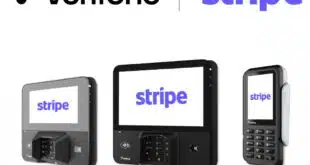The newness of mobile payments likely was a contributing factor to Amazon.com Inc.’s decision this week to pull the plug on its six-month-old Amazon Wallet. That’s the theory suggested by Brian Kilcourse, managing partner at RSR Research LLC, a Miami-based retail advisory firm.
Amazon.com launched Amazon Wallet in July, selling it pre-installed on its Fire smart phone, and making it available for other Android devices on Google Play. The app could store gift, loyalty, and membership cards but not general-purpose credit and debit cards.
n
“We’ve learned a great deal from the Amazon Wallet beta program and will look for ways to apply these lessons in the future as we continue to innovate on behalf of our customers,” said Tom Cook, an Amazon spokesperson, in a statement to Digital Transactions News.
“Amazon may be great at consolidating ‘mature’ demand, they are not so great at creating ‘new’ demand (Kindle being a notable exception),” Kilcourse says in an email to Digital Transactions News. “Mobile payments are ‘new’ and the jury is still out as to which form factor will become the prevalent consumer-accepted one. In other words, it’s very early days even now, and there’s still a lot of work to do with the form factor, security, standards, etc. And those are not things that Amazon has in the past shown a lot of expertise in.”
Although mobile wallets have grabbed headlines following the introduction of Google Inc.’s Google Wallet in 2011 and the launch last year of Apple Inc.’s Apple Pay, they remain in the early stages of widespread adoption.
Indeed, several wallet sponsors have stumbled with adoption among merchants and consumers, and this is starting to lead to market consolidation. Google, which has struggled with its own wallet, is reportedly in talks with some of the country’s biggest mobile operators to buy their Softcard wallet, formerly known as Isis, which has also had a disappointing run.
A dearth of merchant locations to use the wallet, the inability to place every type of card into it, and the tethering of the wallet to a specific device probably were factors in the decision to discontinue Amazon Wallet, says Doug Parr, chief revenue officer at Prairie Cloudware, an Omaha, Neb.-based digital-payments platform for financial institutions.
These drawbacks, of course, are not unique to Amazon’s mobile product. “It’s not as much as reflection on [Amazon], but highlights what it takes to change or alter the payments ecosystem,” Parr tells Digital Transactions News.
Vital to a mobile wallet’s success is how well it balances the interests of consumers, merchants, and banks, Parr says. “Particularly in the digital world, and particularly in the wallet world, a lot of approaches are struggling to balance the interest of all three,” he notes.
Addressing that balance means opening the wallet to any type of card a consumer wants to use, ensuring merchants have a tangible benefit, and not constricting the service to one device, Parr says.
The linchpin for all this may be security, he adds. “The common denominator between the merchants and the banks is the security aspect,” he says. “Security is probably one of the rallying points all three constituents can agree on.”
What Apple, for example, uses with Apple Pay, including tokenization and biometric authentication, is a good starting point, Parr says. Apple Pay also enables consumers to place multiple cards in the wallet, and as consumers use the service, that usage may persuade other merchants to activate near-field communication (NFC) terminals.
But it’s just a starting point. “[Apple] definitely got some things right,” Parr says, “but what do I do if I’m an Android user?” Also, banks have had to give up some basis points of interchange to participate. And, on top of all that, it appears there is no merchant incentive, Parr says.





